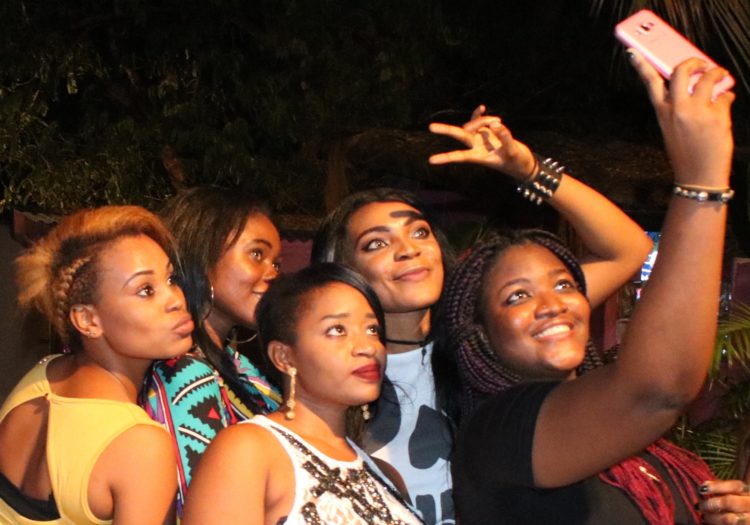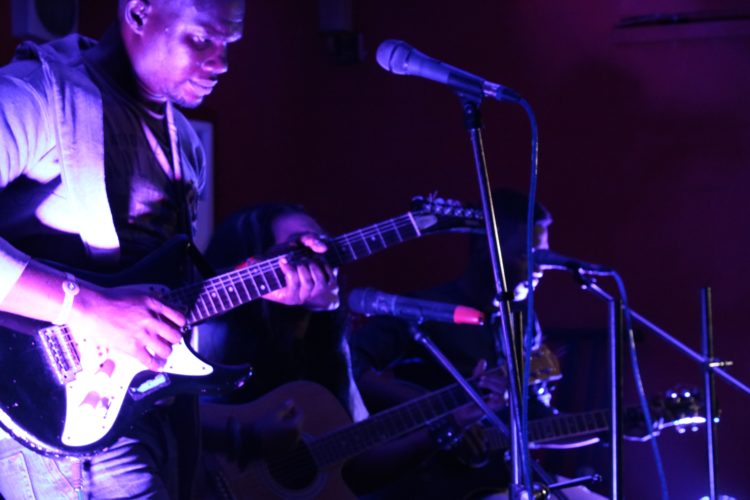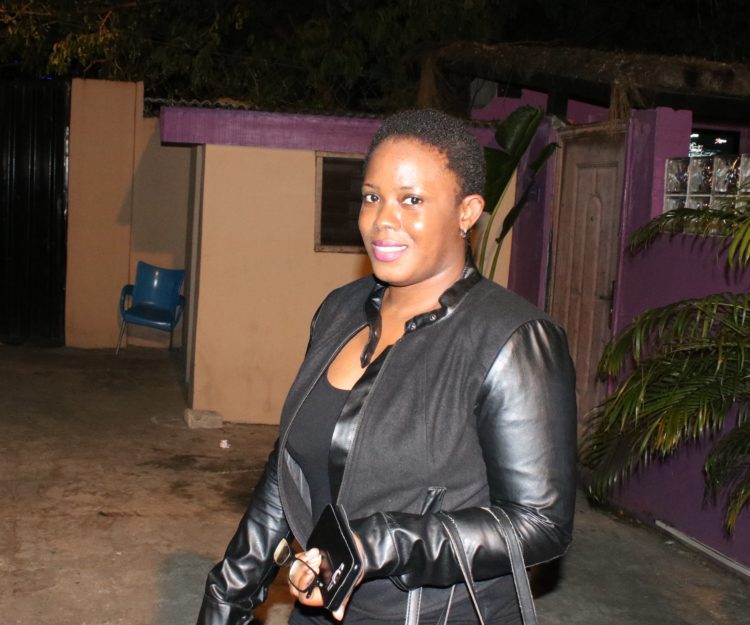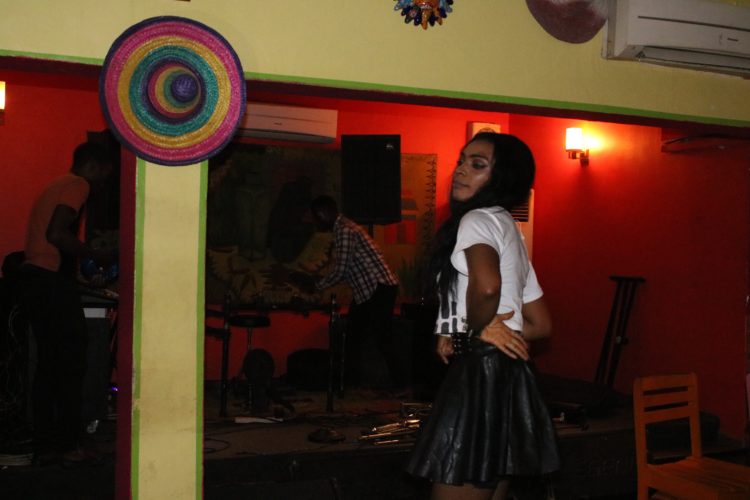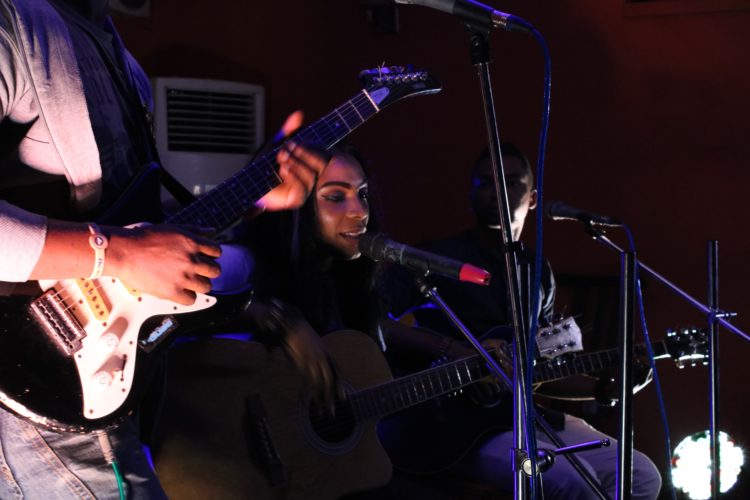When it comes to music, my taste is very varied. When I say varied, I mean it. Scroll through my iTunes library and you’ll find genres spanning from techno, South African house and dancehall, to kizomba and Russian pop. There’s soukous, trap, grime, Oumou Sangaré, waka, Korean indie, neo soul, zouk, highlife. The list just goes on. If I mark stages of my life in music genres, my days as a university student in England would be heavy metal.
For a good number of Nigerians, the introduction to rock came from Evanescence. I was 14 years old and in secondary school when My Immortal came out and I remember how everyone loved that song. It was a break from the usual sounds of hip hop, R’n’B and pop from US charts.
Songs about darkness and being alone elevated my spirits.
I really listened to heavy metal during my university years. I was depressive for most of that period and found that listening to the hardest metal would lift my spirits. Most of the bands I listened to were Japanese and even though I did not understand the language then (I speak a bit of Japanese now), I got the songs. Later when I searched for English translations I would be mildly creeped out that I had understood the meaning despite the language barrier.
Songs about darkness and being alone elevated my spirits. I guess in my mind dark plus dark equalled light. Light brought some ease from me not wanting to be in the world. Maybe naturally, when I was happier I took to listening to other genres.
I moved back to Nigeria after about seven years in England and my curiosity to discover various scenes continued – whether it was the creative, feminist or atheist scenes. I did not expect to stumble upon the rock scene, and I probably wouldn’t have if I hadn’t written an article on African rock bands for MUI. In the simple listicle, I wrote ‘Most people won’t think of African countries when they think of metal music. Yet the much overlooked genre has many fans across the continent and numbers are growing slowly but steadily.’
I then shared four African bands that I was familiar with and signed off with, ‘Rock and metal music are popular in countries such as Botswana and Angola, will we see the genre gain followers in countries like Nigeria?’ That seemed to be what ticked the people at AudioInferno. A Nigerian-owned website dedicated to all things rock, metal and African, its team just had to introduce me to the Nigerian rock scene.
Although overwhelmed by the response — none of my other articles for MUI have gotten that much attention — I was curious. My introduction to the Nigerian rock scene came through two WhatsApp groups that draw over a thousand messages every day. I eventually had to leave one but I’m still a lurker on the other – Rock Republic.
My first taste of the scene outside the app came with meeting Isaac, editor-in-chief at AudioInferno. I was commissioned to interview Zainab Sule, a soft rock artist based in Abuja. Then later, my first rock show hosted by Zainab Sule in Lagos.
We’re sitting outside at Bottles, a Mexican restaurant in Victoria Island, Lagos and the sound is less than stellar. It’s a show hosted by Zainab Sule and friends. It promises sounds from some of the Nigeria’s foremost rock and alternative musicians.
In between eating dinner, chatting with my friends and rushing inside to actually hear the music, I chat with members of Lagos’ rock scene. The crowd are balanced in terms of gender. There’s just as many, if not more, women than men singing along to the live performance. One of them is Oyinda (in the photo above) who I discovered shares a mutual love for folk metal.
When did you discover rock?
‘I started listening to rock as far back as 1999. Most people started listening to rock through Rick D’s show on Cool FM. They had a lot of rock songs on there. From rock I graduated to metal.’
Tell me about your style
‘I dress mostly gothic, black, leather jacket. It’s just the rock part of me. Everything about me is rock. It’s easy to find the stuff I wear in Nigeria. Black is my favourite colour so if I just go somewhere and see black, I’ll buy it. I love wearing band T-shirts as well.
‘I also had the pleasure of talking with Bukola, she’s married rock musician XTSamurai. She’s a fan of rock music herself.’
When did you discover rock?
‘I was introduced to it while growing up. I was drawn to some type of sound, then I realised that is what’s called rock. I’m on the softer side and he [XTSamurai] is on the harder side.’
On being married to a musician?
‘I don’t see him as a star in quotes. He’s just John, we’ve known each other since 1998, so you can imagine we were teenagers when we met. I don’t see him differently. I like music so I guess that’s why it works but I’m not into the music business. I’ve always been in the choir and I’m very drawn to music but not in the commercial sense.’
Clay is a rock pop alternative Nigerian one-woman band – and the stage name for Bianca Adanna Okorocha. She sings, plays the guitar and composes her own songs. At the time, the Zainab Sule live in Lagos show took place, Clay was working on releasing a new song. The single Cheap Happiness was released November 22.
What challenges are you still facing as a Nigerian rock musician? Do you think any of these challenges are because you’re a woman?
‘The challenge isn’t peculiar to me or my gender. It’s the same challenge every struggling/bubbling under act is facing, which is getting the music, videos and art across to the people. It’s a little tougher if you’re indie and alternative.’
Do you have any difficulty finding clothes that match your style here in Nigeria?
‘The emo, punk, goth scene influences how I like to look, even outside music. And yes it can be hard finding the exact item that you’re looking here in Nigeria. Over the years, I have learnt to make my own stuff. Most times, what I wear is DIY.’
You’ve released several singles over the past two years, are they going in an EP or album?
‘I hope to drop an EP next year but I’m not sure if they’ll make the EP though. Both my collaborator, Coldflames and I have been working on new stuff.’
What should we expect from you in the future?
‘Expect nothing less than the very best of Clay. And most definitely beautiful music. Rock on!’
As the evening wore on, I was introduced to Kulu, another woman who found a group of fellow rock and metal fans through the internet.
When did you discover rock?
‘I fell in love with Evanescence the moment I heard Amy Lee’s voice. It was maybe 2009 or 2010.’
How did you find the Nigerian rock scene?
‘I was on Twitter when I came across an account that retweeted rock songs. I followed them and got to meet other people. Then we hung out. Since then it has been a wonderful journey.’
What do you think of the Nigerian rock/metal scene?
‘To me the Nigerian rock scene is not doing so well right now. They are not really pulling the crowd as expected. A lot of people don’t really understand that Nigerian rock is going to be different from mainstream [Western] rock. We’re always going to have to inculcate our own culture into our rock music. It’s everywhere, Chinese rock, Japanese rock. It’s Nigerian rock so they all have to accept that.’
Kulu’s last sentence really resounded with me. It is something that I’ve thought of myself since my short introduction into Nigerian rock music. Whatever genre of music I jam to I appreciate is experimentation. The Nigerian rock music I’ve heard sounds safe, like the early days of Nigerian hip hop. I wonder what Nigerian rock music will look like as it grows. Will there be more metal? More collaboration? I imagine collaborations, fusing in traditional rhythms — such as talking drums — with heavy metal.
This sentiment only grew after an intense discussion with Terwase, a fan who has followed the Nigerian rock and metal scene for years. He thinks Nigerian musicians should put their flavour in their music. Terwase believes that musicians like Clay and Phrance are successfully doing that —bringing their distinct sound even when they do covers.
Adoption and collaboration are needed for rock and metal music to grow in Nigeria.
‘It could be adoption from someone who is different, someone wanting to do a song with a rock musician. Having Lagbaja doing a collaboration with a rock music band for example.’
Yet, if you look into Nigerian music history, you’ll see experimentation and fusion between rock and local sounds. In the 1970s, there were homegrown bands that experimented with hard rock and funk sounds.
The ‘rise and fall’ of Nigerian rock in the decades past may predict the Nigerian rock of today. However, for supporters of the genre, the hope to see Nigerian rock go mainstream continues to burn.

